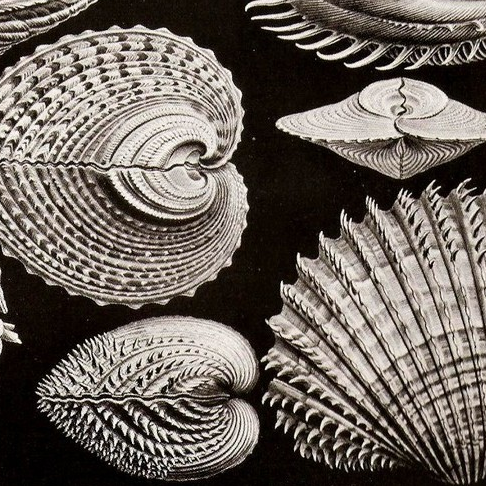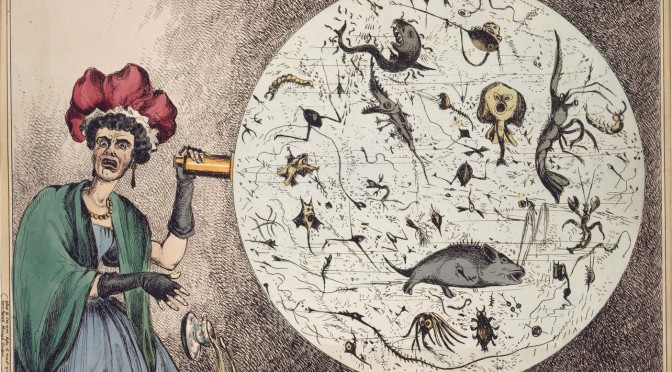Hans Schouwenburg does not seem to be on his own in his ‘emotional call to arms’ for history of science activism. Although all participants took a plane to get to the latest meeting of the History of Science Society in Chicago (6-9 November, 2014), socially engaged history of science was a remarkably present theme. Several speakers could be described as activist – in the sense of aiming to criticise and possibly even change the status quo in the present. I argue that this new activist history of science also changes historians’ philosophical assumptions.
At the Meeting, the Joint Caucus of Socially Engaged Philosophers and Historians of Science presented itself with some ‘Social Engagement Activities’, especially on how to reach people outside the history & philosophy of science community. The Caucus was founded in 2012 “to promote research, educational and public activities in history and philosophy of science that constructively engage matters of social welfare.” Any member of the History of Science Society can join it.
Unsurprisingly, most directly related to Hans Schouwenburg’s call for our scientivistic activism on global warming was Naomi Oreskes’ paper. Oreskes (the author, together with Eric Conway, of Merchants of Doubt) did not just address the social responsibility of historians of science, but argued scientists themselves should speak out on the policy implications of their findings, rather than leaving these to politicians, policy makers, and interest groups.[1] Scientists reason from a strict boundary between science and policy (or science and politics) which is actually harmful, and not necessary, as many historical cases of scientists openly discussing the political implications of their science illustrate. If climate scientists would be more visible in the public debate on what to do about climate change, Oreskes argued, their scientific authority would help in convincing governments and public opinion of the need to take action. Moreover, their presence in the public debate would make it much harder for ‘merchants of doubt’ to claim that science is still undecided about the causes of climate change, and that policy action is unwarranted.
The ‘socially engaged’ history that is in vogue now seems to be deliberately activist about present-day issues. Oreskes’ work is a very clear example of this, but several other papers at the Meeting showed signs of such activism, especially in relation to our current economic system. Kaitlin Stack Whitney for instance argued that the concept of ‘virtual water’, introduced by water scientist John A. Allan for noble goals, has been adopted with much enthusiasm by companies with an interest in water as a commercial commodity, and is now threatening free access to water.[2] Emily K. Brock showed in ‘The Lie of Philippine Mahogany’ how the word mahogany was and is used in wood trading in order to be able to sell many different tropical species of wood (not mahogany at all) under a better selling name.[3] David K. Hecht presented a paper on neoliberal interpretations of Richard Dawkins’ Selfish Gene to give a flavour of realism to ideologies of free market competition and individualised societies. Hecht argued that although Dawkins has always resisted such interpretations, his own text actually provides cause for neoliberal economic interpretations, for instance through his continuous use of specific economic metaphors.[4]

I am sympathetic towards this new activism in the history of science. Only one issue continues to bother me, in my own work as well. Activist history of science is likely to proclaim some science good and other science bad – think of the Merchants of Doubt subtitle: ‘How a Handful of Scientists Obscured the Truth on Issues from Tobacco Smoke to Global Warming’. Such an argument does not go well with what seems to be the dominant philosophical attitude among historians of science towards their subject matter. An example is the symmetry principle of the Strong Program in the sociology of science: a scholar studying science as a cultural phenomenon cannot fall back on Nature deciding any scientific controversy to reveal the Truth. This philosophical attitude makes most of us wary to judge on what science is ‘good’ or ‘bad’. We spend our time contextualising and deconstructing scientific practice as a cultural phenomenon in order to show its back-stage, which is simultaneously good at claiming knowledge about reality front-stage.
Oreskes and Conway know this, of course. Indeed, they never explicitly claim that science is producing the Truth, apart from the subtitle of the book (which their publisher probably suggested). Throughout the book, Oreskes and Conway cleverly navigate between criticising the idea that science produces truth, and condemning the individuals who are ‘trading’ in scientific doubt. For example, the title of chapter 5 suggests it will define bad science, but goes on saying that this is essentially a social question: ‘What’s Bad Science? Who Decides? The Fight over Secondhand Smoke’. In their conclusion, Oreskes and Conway argue: ‘History shows us clearly that science does not provide certainty. It does not provide proof.’[5] Merchants of Doubt’s argument is primarily a social one. It shows that a small number of individuals uses authority gained in an unrelated discipline (mainly Cold War physics) to fuel ideologically inspired (media) campaigns against scientific findings on pesticides, tobacco smoking, acid rain and global warming. These campaigns are aimed at creating the image of scientific doubt where there hardly is any, in order to safeguard conservative ideologies and free market capitalism. And although climate scientists do not provide the Truth, they do reach consensus on climate change, and this consensus is based on their work on climate rather than anything else.
And here, something that is not human is part of Oreskes’ and Conway’s philosophical assumptions about science. ‘Climate’, whatever it may be, is what climate scientists are working on, and it has an influence on the value of the scientific consensus reached about it. And this revaluation of the non-human is more widespread. Bruno Latour gives human and non-human actors equivalent roles in the networks producing or constituting science: he proposes a more radical symmetry which does not grant more power to either Nature or Society. But Oreskes, Conway and other activist historians of science seem to have deliberately moved away from this preoccupation with symmetry: their arguments are inspired by the profound asymmetries resulting from the ideology and practice of profit maximization. They are worried about the scary amount of power many corporations are getting, outgrowing the influence of national democracies, for one thing. Such developments turn our symmetry principle into something that seems less relevant and even rather naïve.
Our world may be a messy place, but unequal power relations are part of that messiness. We start to get worried about this again as part of our scholarship, and that is a good thing.
o-o-o
Floor Haalboom is editor of Shells & Pebbles, and PhD student in the combined history of medicine, veterinary medicine and agriculture at Utrecht University. She studies historical dealings with infectious diseases shared by humans and livestock, like avian flu and mad cow disease. Click here for more information on this project.
Featured image: William Heath, ‘Monster Soup’, http://en.wikipedia.org/wiki/Water_quality#mediaviewer/File:Monster_Soup_-_William_Heath.jpg
[1] Naomi Oreskes, ‘Constructing, Honoring and Breaching the Science/Policy Boundary in Scientific Assessments’ (History of Science Society Meeting Chicago, November 7, 2014).
[2] Kaitlin Stack Whitley, ‘Virtual Water: Natural Resources in the Wake of Neoliberalism’ (HSS meeting Chicago, November 8, 2014).
[3] Emily K. Brock, ‘The Lie of the Philippine Mahogany: Transnational Definitions of Species for Science, Power and Trade’ (HSS meeting Chicago, November 8, 2014).
[4] David K. Hecht, ‘The Power of Metaphor: Evolution and Economics in The Selfish Gene’ (HSS meeting Chicago, November 7, 2014).
[5] Naomi Oreskes and Eric Conway, Merchants of Doubt: How a Handful of Scientists Obscured the Truth on Issues from Tobacco Smoke to Global Warming (New York, Bloomsbury Press, 2011) 268.


